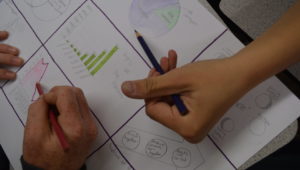home: topics: book: theories: concepts: tf: ab: crit:
10 11 12 13 20 21 22 23 24 25 30 31 32 33 34
40 41 42 43 44 45 46 47 48 50 51 52 (idx)
Learning and School Psychology
Some psychology workers help others understand how people learn and how to help those who have trouble learning.
Educators
Educational psychology is the study of how people learn in school. It examines how different teaching methods affect reading skills and why people learn differently in various situations. It’s based on scientific research in psychology, including studying how our brains work and how we learn.
Jean Piaget: Piaget was a Swiss psychologist who is known for his theory of cognitive development. He believed that children actively construct their understanding of the world through their experiences.
Lev Vygotsky: Vygotsky was a Russian psychologist who is known for his theory of social development. He believed that social interactions and cultural context play a crucial role in learning and development. 
B.F. Skinner: Skinner was an American psychologist who is known for his work in behaviorism. He believed that behavior is shaped by the consequences that follow it. His theories have had a significant impact on education, particularly in the development of operant conditioning, a teaching method that uses rewards and punishments to shape behavior.
Teachers use psychology principles to create a positive classroom environment by applying principles of positive reinforcement and feedback to encourage students’ good behavior and academic performance.
They use principles of cognitive psychology to help students organize information and facilitate their learning process, such as using graphic organizers, mnemonic devices, and chunking information into smaller and more manageable parts.
Teachers also use principles of social psychology to promote collaboration and social interaction among students, such as through group work, peer tutoring, and cooperative learning activities that foster teamwork and communication skills.
School Psychologists
School psychologists, with their unique skill set, play a pivotal role in student success. These professionals, well-versed in child development and learning, conduct comprehensive assessments of students’ academic performance. They provide valuable guidance to teachers and parents, and devise strategies to enhance students’ learning outcomes.
School psychologists give educational assessments to some students. These assessments are tests trained professionals give to identify students’ strengths and weaknesses and how they learn best. These assessments involve interviews, tests, and questionnaires to evaluate learning styles and social-emotional patterns.
School Counselors
School counselors with psychology degrees play a significant role in guiding students through their educational journey. They analyze data to identify students’ needs and collaborate with families, teachers, and school leaders to promote success. They work in elementary, middle, and high schools.
Teachers, school psychologists, counselors, and administrators usually take at least some of their college classes in psychology or even have an advanced degree in psychology. Students might need to realize how much psychology concepts contribute to their learning.
Questions
1. How can learning about educational psychology help teachers create better ways to teach students who learn differently?
2. What are some hard parts of helping kids with behavioral and learning problems for school psychologists?
3. How can facts from research in school psychology make school better for all kids?
Example Behavioral Expectations Class Handbook (High School)
home: topics: book: theories: concepts: tf: ab: crit:
10 11 12 13 20 21 22 23 24 25 30 31 32 33 34
40 41 42 43 44 45 46 47 48 50 51 52 (idx)


